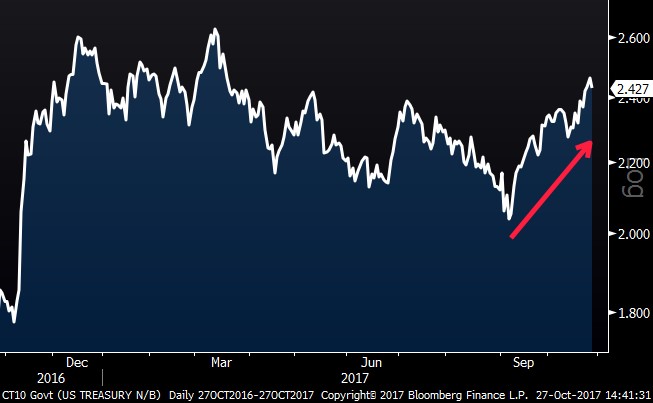Big Tech Boom
Microsoft, Amazon.com and Google all reported earnings last night and all beat expectations. Many, including myself, believe that we are in the early innings of a new technological revolution. Unlike past revolutions where new companies displace the complacent incumbents, it may be that this time around the incumbents (Amazon, Facebook, Google, Microsoft, Apple, etc.) actually lead the way into the new paradigm. These companies have scale, massive R&D budgets and are so far leading the way in artificial intelligence, cloud computing and big data. Here are some factoids related to today’s big moves in these stocks:


